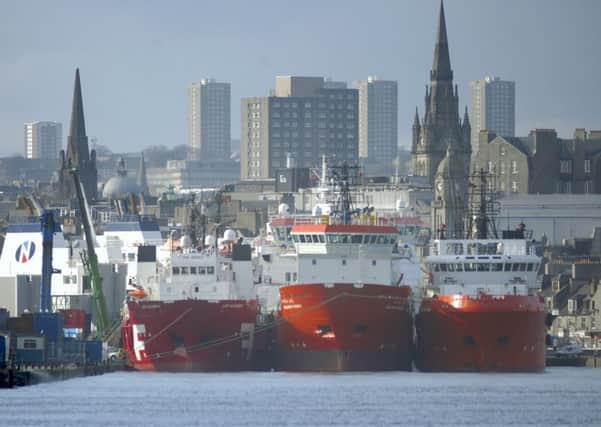Constituency profile: Alex Salmond confident in Gordon


Not so Gordon, where the Liberal Democrats, from their candidate Christine Jardine, to activists on the ground, to even visiting high-profile party grandees, seemed utterly convinced they were going to cling on to a seat they had held since its creation in 1983.
They clearly reckoned without the power of a united cause for independence backers to rally round after the referendum, and the enduring popularity of Alex Salmond.
Advertisement
Hide AdAdvertisement
Hide AdThe North-East constituency, which straddles Aberdeenshire and Aberdeen city council areas, is traditional rural and high earning.
The bigger settlements include Ellon, Inverurie, and Huntly, as well as a number of smaller areas like Balmedia and Strichen.
Ruth Davidson is bullish about the Conservatives chances in Gordon, which is estimated to have voted around 60 per cent No during the independence referendum, despite coming fully 21,000 votes behind Mr Salmond in 2015.
Colin Clark, the Tory candidate in the constituency, won the most first preference votes of any candidate in his ward when he was re-elected to Aberdeenshire council last month, where the Tories also secured the most number of seats.
Ms Davidson tweeted that the SNP in Mr Salmond’s constituency were behind her party, and declared it was ‘game on’ in the seat.
The former SNP leader told the Scotsman: “I’ve had a lot of bullish opponents, for the last nine elections in fact, but you can’t expect them to say anything different, that’s what candidates do. I respect all my opponents and we’ll see what the result is on 9 June, I’ve got a football team full of defeated opponents behind me, so I’ll see if I can add another couple to the list.”
Mr Salmond also thinks that local issues are going to hamstring Colin Clark, saying their decision to pursue an informal coalition in one of the two council areas in the constituency is toxic.
He said: “In Aberdeen, they’ve put in power in the City Council a discredited group [of councillors] who have actually been expelled by the Labour party. In Aberdeenshire, they’ve been caught red handed plotting to close rural schools, which is just about the worst thing for a party to do in rural Scotland.
Advertisement
Hide AdAdvertisement
Hide Ad“At a hustings in Huntly, my Tory opponent confirmed the review into schools, and told an astonished audience that people would be quite happy if four schools were amalgamated into one.”
“To make them errors at any time is bad enough, but to do them at the height of an election campaign is akin to political kamikaze.”
David Evans, the Lib Dem candidate, says he can’t see any way that any Tory surge will see him finish third place, and accuses Mr Salmond of ‘bigging up’ the Conservatives to try and split the unionist vote.
He said: “It’s classic divide and conquer. It’s not correct to say the Tories are the main threat to Alex Salmond, they did very well at the local elections but they are 20,000 votes behind.
“The most common thing you hear on the doorstep is; ‘anyone but the SNP’.
Whatever the result next week, it is perhaps indicative of the transformation of Scotland’s political landscape that what was once a safe Lib Dem seat is now seemingly a three-way marginal.
The voters of Gordon will have many eyes on them come June 8, and could yet deliver a Portillo moment, or reaffirm Alex Salmond’s belief that bullishness is “not the way to approach things” in Gordon.